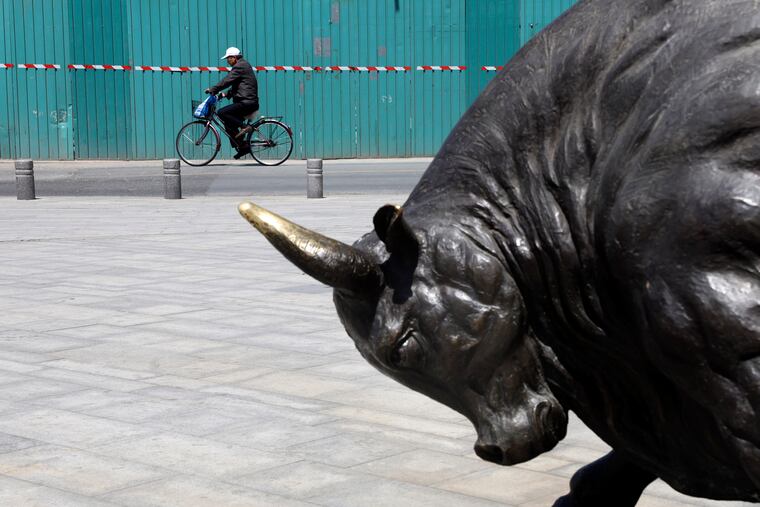Will the stock market drop change Trump’s mind on China? Haverford Trust strategist says ‘yes.’
China’s retaliatory tariffs create more stock market uncertainty.

President Donald Trump is a slave to the stock market, says Hank Smith, co-chief investment officer at Haverford Trust. So, will the president cave after the latest market drop and talk trade deals with China? Smith thinks the answer will soon be “yes.”
“A trade war is a policy mistake. The Fed tightening too much and too fast is a policy mistake. These policy mistakes are the biggest threats to the economy,” Smith said. “The only way for a re-acceleration [of the U.S. economy] is if we remove the risks — trade war rhetoric needs to subside, a China deal needs to be made, and tariffs need to be taken off the table,” particularly on steel, aluminum, and autos, he added.
From a political standpoint, a deal isn’t critical until the end of the summer, Smith estimates. “But if this continues to drag out, GDP could drop a half-point by year’s end,” he said.
Smith says he believes that a deal will get done, as Trump wants economic momentum in the second half of 2019 and especially in the first half of 2020, when his reelection campaign kicks in.
“The deeper and quicker the sell-off, the more likely it gets done,” he added.
From China’s side, investment strategists speculate that China now wonders whether the U.S. economy isn’t as strong as it seems, despite Trump’s comments.
More important, neither side wants its legacy to be 2019’s Smoot Hawley Tariff Act, the protectionist measure that did much to trigger the Great Recession. For perspective, the U.S. equity market has a market cap of $33 trillion versus China’s $6.4 trillion.
Haverford’s Smith said he’s advising clients that the firm will “not go defensive with stocks right now as a pullback is healthy for the market. Materials and industrials are getting hit hard, but we see these big drops as opportunities,” he said.
DowDuPont is down close to 30 percent in a week, a result of tariffs and weather impacting farmers.
“We have owned DowDuPont, a painful holding for the past year. That stock peaked in May 2018 and is down significantly, nearly 30 percent, on worries about a trade war. We still believe in Ed Breen’s strategy of splitting into three companies,” Smith said.
Currently, he’s watching closely the sell-off in Boeing, which has suffered from China’s threats to stop buying Boeing planes and from the two crashes of the 737 Max 8.
“If the stock is further damaged, this might be attractive to investors. We don’t own it, but if it falls down to or below $300 a share, we’d be buyers.
Shares of China-related exchange-traded funds have been volatile in the last few days, including the iShares China Large-Cap ETF (NYSEArca: FXI), one of the largest China ETFs trading in the U.S., as well as the Global X China Consumer ETF (CHIQ).
What more can investors expect from China as retaliation?
“China has been very clever,” notes independence economist Robert Brusca in New York. When China instituted countervailing tariffs, it opted for those that would create the most damage for Trump’s supporters in agricultural states.
“Foreigners are getting very good at attacking not just the U.S. but in a way that exploits our political system," Brusca noted. "China’s recent backing off has all the hallmarks of a country thinking it is in the driver’s seat. Why? Trump is under pressure. Democrats are pressing him relentlessly over his taxes, to get his staff and former staff to testify before Congress. The things the Democrats are doing to attack Trump have international consequences; they are undermining the U.S. effort to conduct business and negotiate treaties.”